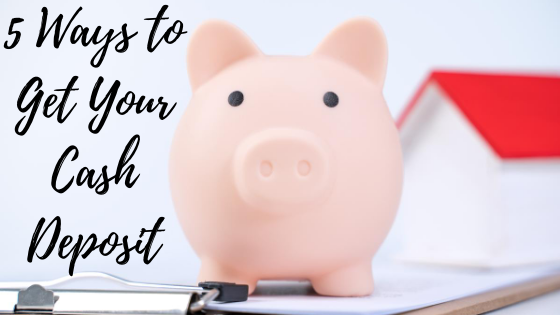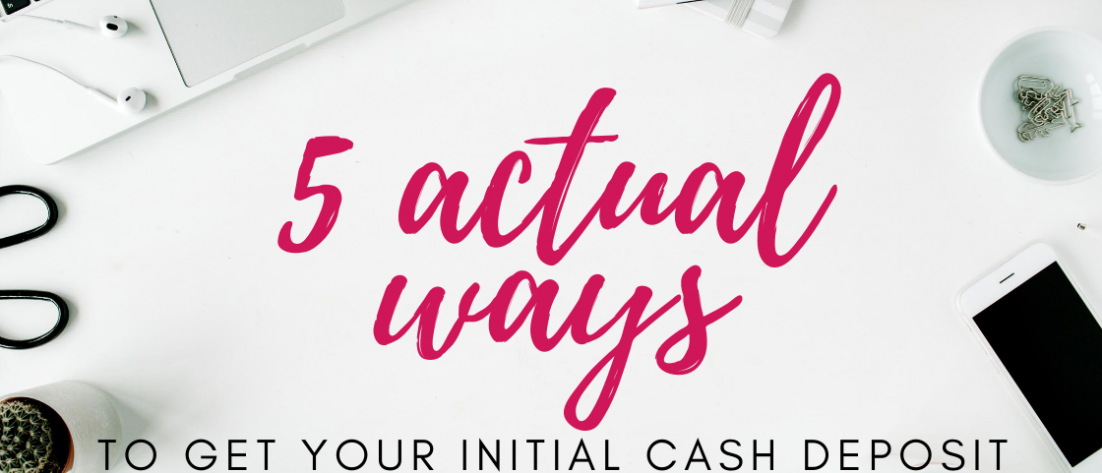There’s nothing particularly mind-blowing about this subject, the truth is we already know the sacrifices we have to make to build up our cash reserves which include save from the income you earn through a job or by setting up a business. However, what I describe below are good hacks you can use to build up your cash reserves as well as innovative ways to source and fund your proposed purchase.
1. CREATE A STEADY SAVINGS PLAN:
Create a goal that states how much per month you will be saving towards your deposit. If you’re serious about saving up, it should be the first thing you deduct from your income and deposit these monthly savings in a difficult-to-access account. An easy way for a salaried employee to do this is to set up a direct debit for the desired amount to be sent into the designated bank account. Conventional wisdom is to save at least 10% of net income received (Imagine that in 10 years you would have saved a whole year’s salary (not taking pay rises or bonuses into consideration).
Also, you should put aside a set amount for emergency say 3-5% of net income, so that should unplanned expenses occur, you are not obligated to dip into your investment fund.
Pro tips: Make sure you create at least 3 steps to take to access to the funds in this savings, like needing to walk into the branch to withdraw from the account. Do not have a card available to withdraw from that account. You should set it up that you need to go into the branch to withdraw from the savings account and cannot access to withdraw from online. Do not set it up as a payment option on your phone so you’re not tempted to use it.
2. BUDGET, BUDGET, BUDGET
Create an expenses budget and stick to the plan, CLICK HERE to get a savings template
Go through your bank statements or direct debits and review all your outgoings to see where you can create saving like subscriptions and arrange your credit cards out with all the balances and work out how to switch or transfer across each account to ensure you’re not paying any interest on your credit cards. Now is the time to call all credit card or loan accounts and see what they can do with their interest rates if they can offer any reductions. Also, you can choose to inform close friends and relatives so they are aware that you will not be indulging in any extras outside your tight budget and you then manage their expectations (if you care). You might need to cut back on leisure items such as take-aways, eating out and going to the cinema etc until your goal is achieved.
3. CONSIDER INVESTING A PORTION OF YOUR SAVINGS
Unfortunately, interest rates are at an all-time low for savings accounts, while it is good practice to save, you could also take a portion of your savings to find investments that are relatively safe. It might be worth investing a small portion of the monthly savings in low-cost index for FTSE 100, FTSE 250 S&P 500. This is especially true for someone hoping to buy in 3-5 years as they are able to ride the peaks and troughs of the stock market. If you’re in a corporate job that has a share scheme, look into it as it as well, some of them have really good plans that vest in 3-5 years and could result in a tidy profit.
These are typically not for someone hoping to buy in the near future, say 12 months’ time. Cash is King in this instance, so best to keep it in a savings account. There are also Crowdfunding platforms you can invest in, but again you will need to do your due diligence on these platforms and get specialist advise. Investigate the pros and cons and also find out if your investment is protected by Financial Services Compensation Schemes which guarantee amounts up to £85,000 held in financial institutions.

If you are under 40 years old:
You could open a Lifetime ISA account i.e. LISA which is available at most UK banks. The beauty of LISA is that government will add 25% to the amount saved up to £4,000 with interest capped at £1,000 p.a. until age 50. Nothing else in the market beats this interest rate. The account is specifically for those saving to buy a house for the first time or for pension, but bear in mind that it has a penalty if you withdraw from it early and you have to be under 40 years old to qualify for it. https://www.gov.uk/lifetime-isa.
4. START A BUSINESS
In Robert Kiyosaki’s Rich dad poor dad (sorry to have to join the millions of people who reference this book, however there is a reason). He talks about the cashflow quadrant and if you want to buy or build assets, you need to create a business that can give you income that you can then build up the cash to buy your assets. It is imperative that you find out what makes you unique and explore how to build an asset or business around it, especially now that we can utilize the digital economy to do so. Also, find out about the different property services and businesses which I cover in the “How to build a six figure business” to create a business in property that can help towards this goal.
5. WIN-WIN JOINT VENTURES
Another method of raising the funds are through joint ventures. I mentioned in my first podcast “Getting started in Property” that I bought my first property as a joint venture with a friend. We agreed the monthly rent based on the comparables in the area and rented out the second room which provided income for us. Further, I gained from the value increase and we had a monthly payout structure, which really worked for both of us and was a real win-win proposition. She got on the property ladder in her own property to live in which meant she was no longer paying rent and could gain from the appreciation over the 7 years she lived there, and I got a good return on my investment and an amazing capital appreciation during that period. At the end, she made a nice profit when I bought her portion and remortgaged the property a few years later and was able to pay her off and retain the property. If possible, you can do this with the government through the shared ownership scheme, your friends, relatives or Bank of Mom and Dad but again, tread with caution and seek specialist advise.
OTHER IDEAS (not for everyone)
1. Younger people looking to buy should consider staying at home with their parents until they’ve saved enough deposit amount. Renting can take up as much as 35% of your salary so it is a consideration, but definitely not for everyone!
2. Buying pre-owned goods or selling items lying about in the house, do a clean-up and sell on eBay or some other platform to build up cash (every little counts!).
3. Find a simple product to buy cheap and sell on eBay or amazon – Find things at a garage sale, refurb and sell on eBay to raise extra cash.
4. Sell your skills: there are now so many platforms online you can create courses etc to build up the necessary skills which you can then sell on as a course or coach etc. For example I love Chris Lucks Membership method which explains how you can create a course around a skill you have.
5. Saving up for the deposit especially in London can be difficult, it might be worth considering getting on the property ladder by buying a property in a growth area outside London at a lower price point to build up your deposit, but this again is a long-term strategy in the 3-5-year range.
As always, I aim to keep property as simple to grasp, but with good useful information, so do feel free to message me for any questions or if you want to find out more information about this post. Do seek out specialist advise for any investments you make that takes your personal circumstances into consideration.
Disclosure: This information is provided to you as a resource for informational purposes only. It is being presented without special consideration of your investment objectives, financial circumstances or risk tolerance of any specific investor and might not be suitable for your investment. Investing involves risk including the potential loss of the principal capital. This information is not intended to, and should not, form a primary or single basis for any investment decision you make. It is good practice to always consult your own legal, tax or investment advisor before making any investment, financial planning and tax considerations or decisions.








Dear Dolly,
Really enjoyed reading through your post. Very information and I learn more new things to try out.
Thanks
Ibi
Great words of property wisdom.
Lovely read… Nice to not have lots of affiliate links too… lovely layout…some good interesting points…especially buying out of london.. i had seen someone trying to save 35k for a deposit the other week… so i sent them a link to a 1bed apartment that rents for 375+ for 30k purchase outright.. needed nothing spending other than fresh paint and carpets….. but potential to 2 bed it… good rental then 450+ but also nearer 50k+ value.. money out remortgaging and more… and an infinite roi on remaining…. but more importantly a 2nd income on the rental and told them to goto a decent whole market broker as a 90% or a 75% ltv gave little saving between the two to warrant paying such huge sums and also waiting longer whilst all the time property prices are climbing..
Anyway back on topic..lovely read..lovely blog and site… and look forward to more cracking posts..